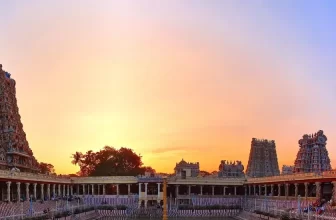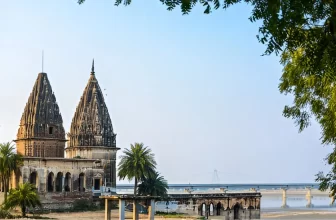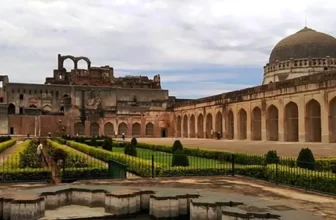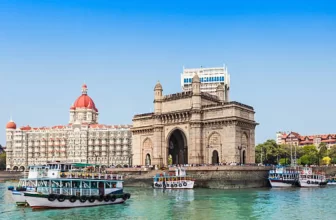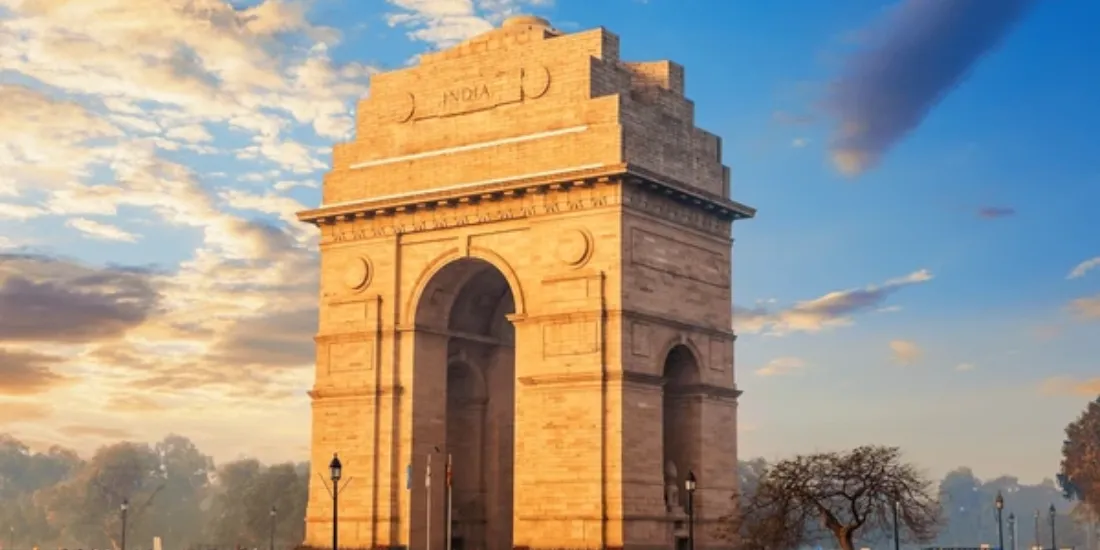
Thinking of studying abroad in India’s most dynamic city? Welcome to Delhi, where heritage meets high-tech, and academic ambition finds the perfect backdrop.
This study guide in Delhi is your go-to companion for navigating life as an international student in the capital. From ancient forts to futuristic classrooms, spicy street eats to articulate seminars, Delhi is a universe in itself. A mega city with a million stories.
As the country’s political, cultural, and educational hub, Delhi isn’t just bustling, it’s brilliant. It’s home to some of India’s best universities, cutting-edge research institutions, and a dense network of opportunities across every imaginable field: business, law, design, tech, journalism, diplomacy, the list is long.
Whether you’re planning a bachelor’s, postgrad program, or research project in India, Delhi offers the infrastructure, diversity, and academic depth needed to make your study abroad journey truly impactful. Let’s explore why studying in Delhi could be the smartest (and most exciting) decision you’ll ever make.
Why Delhi Is a Global Magnet for International Students
So, what makes Delhi such a powerful destination for international academics?
Let’s start with the scale. Delhi has over 500,000 students across multiple public and private institutions. It hosts thousands of international students from Africa, Asia, Europe, and beyond who arrive for both full-time degrees and semester-based exchanges.
Next, education quality. Institutions like the University of Delhi (DU) and Jawaharlal Nehru University (JNU) are ranked globally for social sciences, humanities, economics, political science, and science research.
Then there’s language accessibility. Most programs are delivered in English, drawing scholars from both developing and developed economies. The academic environment is multicultural, competitive, and collaborative.
Add in Delhi’s global cultural scene, excellent employment prospects, diplomatic presence, and lower-than-Western-world costs, and it’s easy to see why students from over 70 countries choose to study here annually.
Top 10 Universities and Colleges in Delhi
1. University of Delhi (DU)
One of India’s most prestigious universities. 90+ affiliated colleges. Top faculties in Economics, PolSci, English, and Commerce. Admission is highly competitive.
2. Jawaharlal Nehru University (JNU)
Globally respected for social sciences, international relations, humanities, and languages. Highly research-intensive, ideal for postgraduate studies.
3. Indian Institute of Technology Delhi (IIT-Delhi)
Among the top 3 tech institutes in India. Globally ranked (QS 197 in 2024). Leading in engineering, AI, robotics, and research.
4. Jamia Millia Islamia (JMI)
A central university with a strong reputation in journalism, media studies, law, liberal arts, and architecture.
5. Indraprastha Institute of Information Technology (IIIT Delhi)
Modern institute making waves in data science, cybersecurity, and AI-driven innovation.
6. Ambedkar University Delhi (AUD)
A social sciences-focused school, also known for liberal arts, development practice, and psychology.
7. Indian Institute of Foreign Trade (IIFT)
Elite business school offering MBAs in international trade and business economics. Government-run, globally connected.
8. National Institute of Fashion Technology (NIFT Delhi)
The HQ of India’s top design institute. Offers B.Des, M.Des, Fashion Management, and global industry exposure.
9. Institute of Hotel Management, Pusa (IHM-Pusa)
Asia’s leading hospitality school. Offers diplomas, B.Sc, and postgraduate specialisations in hotel management & culinary arts.
10. International Management Institute (IMI Delhi)
Cosy, high-ranked B-school with great faculty and corporate tie-ins. Ideal for MBA aspirants looking for compact learning environments.
Top 10 Student Accommodation Properties in Delhi
- CoHo, Greater Kailash
- Your Space, Hudson Lane
- Stanza Living, Mukherjee Nagar
- Tribe Stays, South Campus
- OxfordCaps, North Campus
- Zolo Social, Laxmi Nagar
- HelloWorld Nova, Saket
- Nestaway Shared Flats, Lajpat Nagar
- Hazel Stays, Hauz Khas
- SettleInn, Dwarka
Top 10 Student Areas in the City
1. North Campus (DU)
The student district. Bustling, affordable, and super convenient for colleges like Hindu, SRCC, and St. Stephen’s. Hostels like OxfordCaps and Stanza Living thrive here.
2. South Campus (DU)
Cleaner and slightly quieter than North. Well-connected and near Venky and ARSD. Tribe Stays is a luxury pick here.
3. Mukherjee Nagar
Famous for UPSC coaching but now packed with PGs and international students. Near Stanza Living and great food outlets.
4. Hudson Lane (GTB Nagar)
Next to North Campus, loaded with cafés, thrift stores, and budget housing. Your Space is a popular option.
5. Saket
South Delhi favourite. Near JNU, IIFT, and IGNOU. A balance of shopping, metro access, and hip neighbourhood feels. Try HelloWorld Nova.
6. Lajpat Nagar
Pocket-friendly, culturally rich, close to Amar Colony market. Good for NIFT, JMI, and psychology students. Nestaway has flatshares here.
7. Hauz Khas
Trendy and historic. Near IIT Delhi and JNU. Hazel Stays offers high-comfort co-living near cafés, art studios, and green parks.
8. Dwarka
More spacious and residential. Near NSIT and some private MBA colleges. SettleInn offers smart private rooms and PGs.
9. Vasant Kunj
Popular among foreign embassy staff and international students. Close to JNU and NSIT. Large shared flats feel suburban but connected.
10. Laxmi Nagar
Great for East Delhi students and those studying at IP University. Affordable and local. Zolo Social is known here.
Cost of Living in Delhi for a Student
Delhi sits somewhere in the middle in terms of Indian city expenses, more than cities like Lucknow, but less than Mumbai or Pune.
Here’s a realistic monthly breakdown:
- Rent (PG/shared studio): ₹10,000–₹20,000
- Food (mess + meals out): ₹4,000–₹7,000
- Local transport (metro, rickshaws): ₹1,000–₹1,500
- Mobile & Internet: ₹600–₹1,000
- Personal/leisure/other: ₹3,000–₹5,000
🎒 Total monthly spend = ₹18,000–₹34,000 ($215–$400 approx.)
You can spend less if you share rooms or cook more often. Many hostels include meals and Wi-Fi, lowering daily expenses.
Getting Around: Transport in Delhi for Students
Delhi is massive. But moving around? Smooth and ultra cheap, if you plan it right.
- Delhi Metro: The lifeline. Covers almost every part of the city. Fares: ₹10–₹60. Get a student metro card to save more.
- Auto Rickshaws: Best for short trips. Always negotiate, or ensure the meter runs.
- E-rickshaws: Ideal for that “last 1-km” trip from metro to PG. Super affordable and everywhere.
- Buses (DTC): Government-run. Air-conditioned fleet for longer routes. Not always on time, but cost-effective.
- App taxis: Uber and Ola work beautifully. Great for airport runs or late-night returns.
- Bike rentals: Apps like Bounce and Rapido let you rent a scooter or motorbike. Cheap, though roads can be hectic.
Tip: Download Delhi Metro Rail app and RideSafe for real-time safety alerts & navigation.
Summary: Why Delhi Is the Study Abroad Game-Changer
Let’s recap everything packed into this study guide in Delhi.
Delhi is pulsing with opportunity, diversity, and proven academic excellence. It’s where the past and the future shake hands. Where you walk from colonial campuses to startup hubs. Where English is widely spoken, street food is soul-satisfying, and the academic standards are legit impressive.
If you want a study abroad experience that challenges, inspires, and transforms you, then Delhi delivers.
In short? Come for the degree. Stay for the intensity, impact, and the people you’ll never forget.
Top 10 FAQs About Studying in Delhi
1. Is Delhi safe for international students?
Yes, especially around student zones and campuses. Stick to smart habits and use public transport or apps at night.
2. Can I apply to Delhi universities without knowing Hindi?
Yes. Most courses are taught in English, especially at universities like DU, JNU, IIT, and JMI.
3. How expensive is life in Delhi?
Mid-range. Monthly budget ranges from ₹18,000 to ₹34,000, including rent, food, and travel.
4. Which is better for studying abroad in India, Delhi or Mumbai?
Delhi is better for politics, law, humanities, journalism. Mumbai wins for media, fashion, finance.
5. Do Delhi universities offer scholarships to foreigners?
Yes. Many universities, including JNU and DU, offer ICCR-based or merit-driven scholarships.
6. Which is the best area for student housing in Delhi?
North Campus, South Campus, Hudson Lane, and Saket are top-rated among locals and internationals.
7. Can I work part-time while studying in Delhi?
Not unless approved by your visa. Some universities allow internships, but off-campus paid work isn’t permitted by default.
8. What’s Delhi weather like?
Scorching summers (April–June), cold winters (Dec–Jan), and beautiful monsoons in between. Be wardrobe ready!
9. How diverse are Delhi’s students?
Extremely. You’ll find students from Nepal, Bhutan, Afghanistan, Africa, Europe, and Southeast Asia.
10. What are the best programs to study here?
Political Science, Sociology, Literature, Law, Engineering, Fashion Design, and MBA programs lead the rankings.



